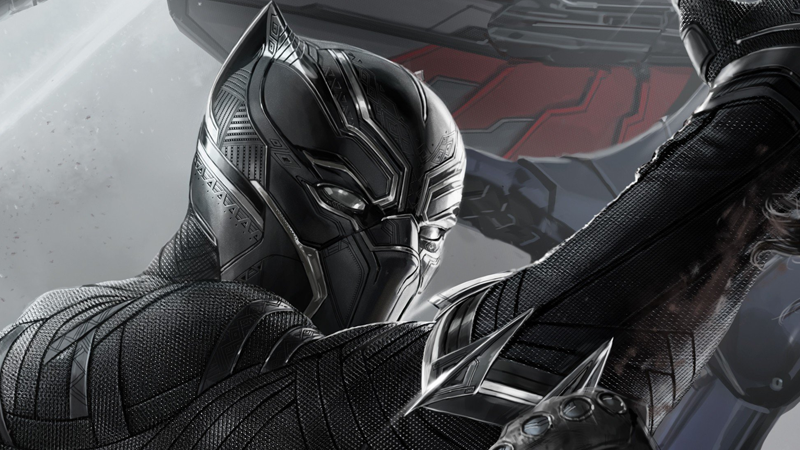The studios behind major superhero films have been criticized for years for failing to embrace diversity in casting. The problem isn’t with the foundation for these films, as there are plenty of black superheroes in comics. The issue is that the movie studios just haven’t seen fit to shine the spotlight on such characters on the big screen, at least not in a very meaningful way until recently.
There are a few examples of Black Americans in major superhero roles, with perhaps the most noteworthy being Halle Berry in the early X-Men films. Berry took on the role of Storm in 2000, and still played the character as recently as in 2014’s X-Men: Days Of Future Past. This is a character who is traditionally black in the comics, and Berry contributed to making her one of the most recognizable non-white superheroes for modern fans as well. And even in some newer bits of entertainment related to the films, such as Gigataur’s Uncanny X-Men: Days Of Future Past app, the images of Storm are reminiscent of Berry’s version.
While we’re on the idea of the lasting image of some of these earlier black characters, the first of them all to make a serious impact was probably the Blade portrayal by Wesley Snipes. While the Blade trilogy has been largely forgotten in the face of the more successful superhero franchises that followed, the character remains oddly prominent. Gala Casino’s page of games and jackpots still hosts a title based on Blade, and specifically Snipes’s version of the character as well. Though he’s labelled as the “famous vampire hunter from Marvel comics,” the image used is clearly meant to be Snipes. And the game’s placement next to other Marvel characters with more current popularity just goes to show the impact Snipes had early on before the superhero genre really took off.
Aside from Blade and Storm, the studios really didn’t have much to do with African-American actors or black characters for the better part of a decade. Two Hulk films, a few more X-Men instalments, Wolverine spinoffs, multiple Spider-Man franchises, and a few lesser-known projects largely ignored diversity. Then in the early 2010s, we started to see a half-hearted effort to correct the problem. Don Cheadle had a larger role in 2010’s Iron Man 2 than Terrence Howard had in the previous film (in the same role of James Rhodes/War Machine), and Idris Elba had a memorable appearance as gatekeeper Heimdall in Thor. We even saw a young black X-Men character in 2011’s X-Men: First Class, albeit in an almost disrespectfully unimportant role.
But in the last couple of years, things have really improved on the diversity front. Fortune wrote up a piece in 2014 about Marvel in particular opening up its “universe” to women and minorities, and we’ve really started to see the minority side of the equation play out on screen.
It started with a bigger role for a few black sidekicks, and while that isn’t the symbolic step some wanted to see, it did mean more screen time for African American actors. In particular, Cheadle and Anthony Mackie (who plays Falcon in the Captain America films) have seen more time, and both feature prominently in the newly released Captain America: Civil War. These are two very capable actors, one firmly established and the other up-and-coming, and it’s a good look for Marvel Studios to have them on screen more and more.
But the real progress is in the years to come. Two characters, in particular, have broken barriers in superhero cinema’s slow but sure quest for appropriate diversity. The first, Luke Cage (played by Mike Colter), appeared in the Marvel/Netflix show Jessica Jones when it debuted in mid-2015. The second, Black Panther (Chadwick Boseman) just made his own debut in Captain America: Civil War as the newest Avenger. They’re certainly exciting in that they’re adding more diversity to the screen, but the real impact is that both are slated for solo projects as well. A follow-up Luke Cage Netflix show will come out later this year, and a solo Black Panther film is scheduled for a 2018 release. They’ll be the first major superhero projects (excluding Will Smith’s semi-spoof Hancock) starring African-American actors since the Blade trilogy.

The progress has been slow, but it’s also real. And we’re finally reaching a point at which the superhero studios are ready to hand starring roles to African-American actors. It’s about time.
Check out
Fashion And Style: Black Panther – African Cultures And Influences
Of Babes In Capes: What I Learnt From Female Superheros – @mawazo_mengi

